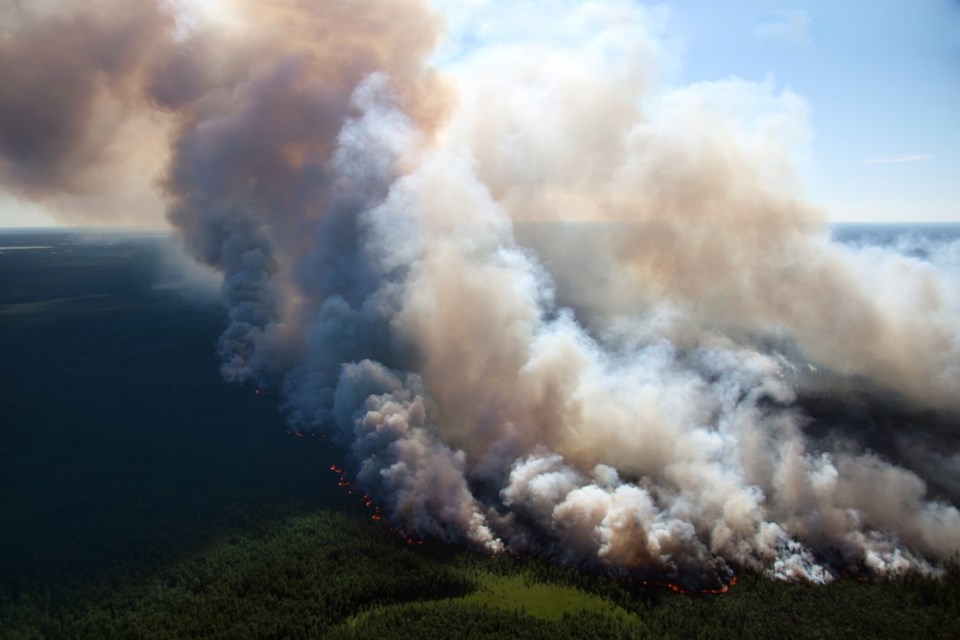Northwest Region
There were 19 new fires confirmed by early evening on August 10 in the Northwest Region and more were expected before the day was done.
There were 17 confirmed fires by day’s end on August 09.
The forest fire hazard continues to rise in the north and is rebounding in the south despite recent rain. Intense fire behaviour is possible in windy conditions.
To track the fire hazards and to see a complete list of fires across the province click on our interactive map. You can also get the latest update on the condition of any fire by clicking the fire icons.
The majority of the new fires are caused by lightning but some are still attributed to human-causes.
Out of Province Deployment
Currently, there are approximately 150 staff supporting the province of British Columbia in their fire management efforts.
Ontario, as part of the Great Lakes Forest Fire Compact (GLFFC) including Michigan, Minnesota and Wisconsin has formed international crews of firefighters currently deployed to British Columbia.
Ontario continues to have firefighting staff on the ground in British Columbia to help support ongoing firefighting efforts. This is being done while also ensuring we have the necessary firefighting personnel here at home. So far since mid-July, four large contingents of FireRangers that had been deployed out of province have now returned to Ontario from BC.
The public is urged to take an active role in preventing more fires. This can be done by not burning when it is windy, monitoring your fire and ensuring that you have water nearby to extinguish your fire. As a reminder, there is no day burning of brush and grass.
Planning to have a campfire?
Here are some tips on how to safely enjoy your campfire and avoid the costs and dangers that can arise from an unextinguished or unattended campfire:
- Choose your site carefully. Select a site with easy access to water that is sheltered from high winds. The fire must be built on bare rock or non-combustible material.
- Prepare the site. Clear a one metre space around your campfire site and remove all pine needles, grasses, leaves and twigs.
- Keep your fire small. By law, your campfire cannot exceed one metre in height and one metre in diameter.
- Stay nearby. Never leave your campfire unattended.
- Put your fire out. Soak your fire with water.
- Be sure the fire is extinguished. Stir the ashes with a stick to uncover hot coals and then soak it again!
Ontario has increased the maximum fines for individuals and corporations for starting forest fires.
Increased Fines for Starting a Forest Fire
Fire numbers and online information:
- Forest Fire Reporting Number - 310-FIRE (3473)
- Follow us on Twitter: in English @ONForestFires or in French @ONFeuDeForêt
- For guidelines on safe outdoor fire management ontario.ca/fireprevention
